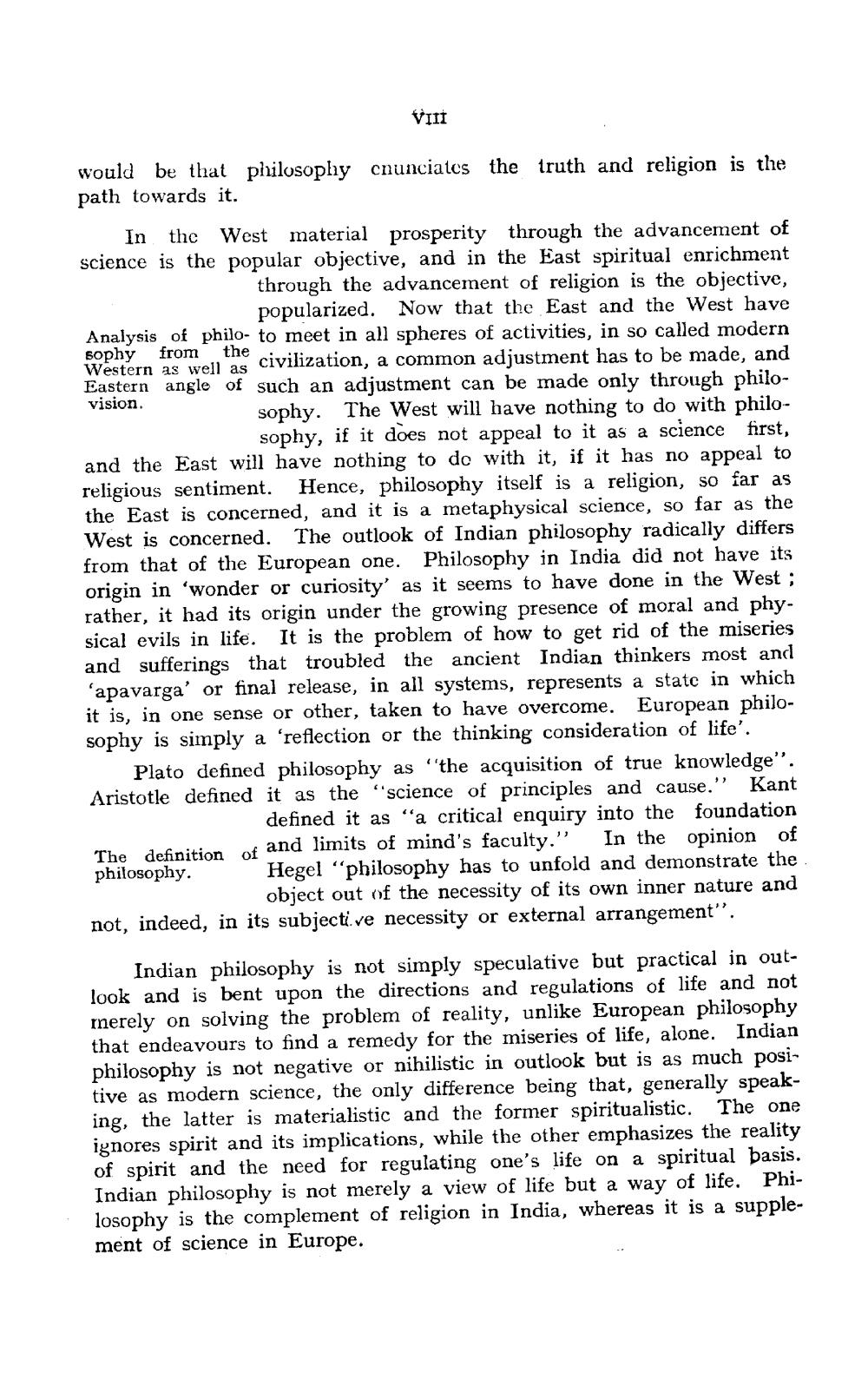________________
VIII
would be that philosophy enunciates the truth and religion is the path towards it.
In the West material prosperity through the advancement of science is the popular objective, and in the East spiritual enrichment through the advancement of religion is the objective,
Western as well as
popularized. Now that the East and the West have Analysis of philo- to meet in all spheres of activities, in so called modern sophy from the civilization, a common adjustment has to be made, and Eastern angle of such an adjustment can be made only through philosophy. The West will have nothing to do with philo
vision.
sophy, if it does not appeal to it as a science first, and the East will have nothing to do with it, if it has no appeal to religious sentiment. Hence, philosophy itself is a religion, so far as the East is concerned, and it is a metaphysical science, so far as the West is concerned. The outlook of Indian philosophy radically differs from that of the European one. Philosophy in India did not have its origin in 'wonder or curiosity' as it seems to have done in the West; rather, it had its origin under the growing presence of moral and physical evils in life. It is the problem of how to get rid of the miseries and sufferings that troubled the ancient Indian thinkers most and 'apavarga' or final release, in all systems, represents a state in which European philoit is, in one sense or other, taken to have overcome. sophy is simply a 'reflection or the thinking consideration of life'.
Kant
Plato defined philosophy as "the acquisition of true knowledge". Aristotle defined it as the "science of principles and cause." defined it as "a critical enquiry into the foundation and limits of mind's faculty." In the opinion of Hegel "philosophy has to unfold and demonstrate the object out of the necessity of its own inner nature and not, indeed, in its subjective necessity or external arrangement".
The definition of philosophy.
Indian philosophy is not simply speculative but practical in outlook and is bent upon the directions and regulations of life and not merely on solving the problem of reality, unlike European philosophy that endeavours to find a remedy for the miseries of life, alone. Indian philosophy is not negative or nihilistic in outlook but is as much positive as modern science, the only difference being that, generally speakThe one ing, the latter is materialistic and the former spiritualistic. ignores spirit and its implications, while the other emphasizes the reality of spirit and the need for regulating one's life on a spiritual basis. Indian philosophy is not merely a view of life but a way of life. Philosophy is the complement of religion in India, whereas it is a supplement of science in Europe.




